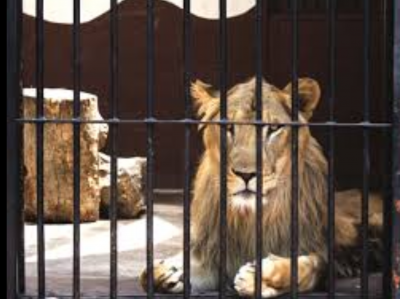News
Latest Lion Aid News
The “animal rescue” and “sanctuary” business – how can we improve what is happening?
Tuesday 31st July 2018
|
For sure, animal rescues from decrepit zoos, those in war zones, roadside attractions, circuses, private owners in Paris and Dubai – attract much attention and donations from kind hearted people. In the case of lions, such rescues start with appeals showing pictures of emaciated animals in small cages and similarly appalling conditions. Donors are then supplied with videos of the rescues, the lions being loaded onto planes, and then delivered into “sanctuaries” – often in Africa where the lions can be brought back “home” – and then discovering their new freedom by further videos of the lions discovering grass and open spaces for the first time.
But recently, an organization involved in rescues and another organization supplying the sanctuary seem to have fallen out. The sanctuary, approved by the rescue organization, was accused of negligence by not adequately protecting these lions. Some were killed by poachers, some died in fights among the lions. The rescue organization now wants the lions to be “returned to sender”.
To me, this shows that there is a big disconnect that needs to be urgently addressed.
1. Any organization that “rescues” a lion (or other animal) from miserable conditions and collects donations to do so should tell their donors that the “rescue” involves a life-long commitment to those lions (or other animal). The rescue organization’s financial responsibility does not end at the gates of the sanctuary.
2. Sanctuary operations should not be independent from rescue donations. This is where much seems to have gone wrong. It would seem that rescue organizations have a short-term commitment funded by considerable donations while the long-term commitment for the animals by sanctuaries is not mentioned or acknowledged in fundraising requests. Sanctuaries cannot match the donations of the rescue organizations, sadly, as now the animals are supposed to be “safe and happy”. End of concern?
3. Rescue organizations should assume “ownership” of the lions (or other aninamls) involved. These organizations have the lifelong responsibility of these animals, as they have “rescued” them with public funds. If the rescue organizations then arrange to turn over such ownership of such animals to another organization, like sanctuaries, a clear arrangement should be made between the two. The sanctuaries cannot attract the donor support that the rescue organizations do, as I mentioned above. How many videos of happy rescued lions walking in grass for the twentieth time can sanctuaries make to attract funds?
4. Rescue organizations should make public all funds received for each “rescue” and how these funds were allocated. Rescue organizations should be required to make public what arrangements were made with their chosen sanctuaries, and what financial arrangements they made with the sanctuaries to house the rescued animals. Sanctuaries should publically state what finances and facilities they have and can anticipate for the lifelong care of these animals, as their “business plan” of being a sanctuary.
5. The donating public should be made aware, especially by the rescue organizations, that there are too many animals needing to be rescued than can ever be housed in sanctuaries. There are more tigers in private hands (excluding zoos) in the USA than in the wild. There are more lions in private hands (excluding zoos) in Europe and the USA than wild in the Serengeti. There are 8,000 or so captive bred lions in an uncontrolled South African breeding industry that will be turned into bones for Laos and Vietnam and cannot be rescued ever in sanctuaries. 6. Unless rescue organizations and sanctuaries form a joint business relationship, where one funds the other and vice versa, the entire long-term ideal to rescue animals falls apart. The currently separate organizations need to be joined at the hip to convince the funding public that animals saved will be animals taken care of for their lifetimes.
Until we reach this level of cooperation and transparency, the donating public will be disappointed and frustrated. And sanctuaries and rescuers will remain at loggerheads.
Picture credit: Wikimedia commons
Tags: lions, animal rescues, circuses, sanctuaries, Categories: Events/Fundraising |
Posted by Chris Macsween at 19:27
No comments have been posted yet.
Add a new comment
Existing user
New user sign up




